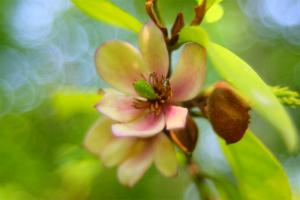Introduction
Potted plants are a popular addition to any indoor or outdoor space. They are beautiful, easy to care for, and require very little space. However, like all plants, they require proper nutrition to thrive. In this article, we will explore the different types of fertilizer that potted plants need to grow healthy and strong.
Types of Fertilizer
There are two main types of fertilizer – organic and synthetic. Organic fertilizers are made from natural materials such as compost, bone meal, and blood meal. These fertilizers are slow-release, meaning they release nutrients slowly over time, providing a steady supply of nutrition to plants. Synthetic fertilizers are made from synthetic materials and are fast-release, meaning they release nutrients quickly. While synthetic fertilizers are effective, they can be harmful to the environment and should be used sparingly.
What Nutrients Do Potted Plants Need?
Potted plants require several essential nutrients to grow healthy and strong. These nutrients include:
- Nitrogen: This nutrient is vital for plant growth and is responsible for producing lush, green foliage.
- Phosphorus: This nutrient stimulates root growth and is essential for flowering and fruiting.
- Potassium: This nutrient is important for overall plant health and helps plants to withstand drought, disease, and pests.
- Calcium, magnesium, and sulfur: These nutrients are known as secondary nutrients and are essential for plant growth, but are required in smaller quantities than nitrogen, phosphorus, and potassium.
How to Choose the Right Fertilizer
When choosing a fertilizer for your potted plants, it is essential to consider the plant's specific nutrient requirements. Most fertilizers will list the nutrient ratios on the package. Look for a fertilizer with an NPK (nitrogen, phosphorus, potassium) ratio that matches the needs of your plant. For example, plants that require more nitrogen, like leafy greens, should be fertilized with a higher nitrogen fertilizer.
How to Apply Fertilizer
When applying fertilizer to potted plants, always follow the instructions on the package. Over-fertilization can harm your plants and burn their roots. Typically, you should apply fertilizer every 4-6 weeks during the growing season. Be sure to water your plants thoroughly after applying fertilizer to prevent nutrient burn. You can also incorporate organic matter, such as compost, into the soil to provide a slow-release source of nutrients over time.
Conclusion
Potted plants need proper nutrition to grow healthy and strong. Choosing the right fertilizer and applying it correctly is essential for plant growth and success. By following the tips outlined in this article, you can ensure that your potted plants receive the nutrients they need to thrive.

 how many times do yo...
how many times do yo... how many planted tre...
how many planted tre... how many pine trees ...
how many pine trees ... how many pecan trees...
how many pecan trees... how many plants comp...
how many plants comp... how many plants can ...
how many plants can ... how many plants and ...
how many plants and ... how many pepper plan...
how many pepper plan...





























